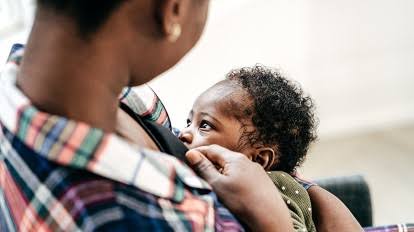As pregnant women and nursing mom’s are not excluded from the risk of getting infected, proper measures should be put in place to help avoid this virus.
A certain Medical Doctor has shared tips some tips for new parents and pregnant moms.
Pregnant Women risk and the Virus
The physiologic and immune changes that women undergo during pregnancy lead to an increased risk of infections. For example, we know that pregnant women who get influenza are at an increased risk of getting viral pneumonia.
As of now there are no reports of the virus being able to cross the placenta to affect babies during pregnancy (vertical transmission), nor are there any cases of babies contracting the virus during labor and delivery. There have been reports of a possible association between COVID-19 and preterm labor in China, but there are no other known pregnancy complications at the present time,” she said.
There is a possibility that pregnant women who are “high-risk” due to problems such as pre-eclampsia and gestational diabetes may be at higher risk of COVID-19 related complications, but there have not been enough documented cases in pregnant women to come to conclusions in regards to this.
It’s really important that pregnant women who think they might have COVID-19, or have been exposed, contact their obstetrician or midwife for guidance on how to proceed. In addition, any pregnant woman with cough, fever, and shortness of breath should be evaluated in person ASAP.
Breast feeding folks and the likely risk they face
There are no known cases of COVID-19 being passed from mother to baby via breastmilk. Breast milk samples from Chinese mothers with coronavirus that have been tested have not found the virus in milk.
Breastfeeding helps to bolster your baby’s immune system and is one of the best ways that you can help prevent your baby from getting coronavirus. So at this time it’s recommended to continue breastfeeding, even if you have been exposed.
If Breast Feeding Mom Is Exposed
- Wash your hands before touching and feeding your baby.
- Wear a mask while breastfeeding.
- If pumping, make sure to wash your hands before pumping and thoroughly clean pump parts after each pumping session.
- Consider having someone who is well feed your baby pumped milk.
To protect yourself during pregnancy:
- Be diligent about practicing good hand hygiene. Wash your hands frequently, especially before eating and after being out in public.
- Do not come in close proximity with people who have been diagnosed with coronavirus and/or exposed to coronavirus. Limit contact with others who are currently sick (i.e. with a fever and cough). Consider avoiding places and gatherings with large crowds.
To protect your newborn:
- Wash your hands or use hand sanitizer every time you touch your baby.
- Limit visitors in the first few weeks after giving birth and make sure that people who have recently been sick and/or possibly exposed to COVID-19 do not visit.
- Breastfeed, if possible, to help bolster your baby’s immunity. Even partial breast milk will make a big difference in helping your baby to fight off infection!
- If you are pumping breast milk, make sure to clean and disinfect your pump and all parts before and after every use.
- Call you baby’s doctor if you have any concerns about his or her symptoms, including a fever, quick breathing, cough, and/or refusing to eat.
Myths to avoid
One myth is that pregnant women should avoid hospital births due to a risk of contracting the virus at a hospital. It’s important for pregnant women to continue to get regular obstetric care with their doctor or midwife, and continue to plan for a hospital delivery, especially if one’s pregnancy is “high risk.”
Another myth is that babies cannot get the virus. While the chances of a newborn getting sick from the virus are low, there is a risk of community-acquired spread. Thus people who have recently been sick and/or might have coronavirus need to stay away from newborns.
The third myth is that coronavirus is “just like the flu” and nothing to be worried about. This is a brand new virus to which none of us have immunity, there is not a vaccine available, and the fatality rates in all countries are higher than the rates for the seasonal flu.
Thus far there have only been two newborn babies in China with documented coronavirus infection. Overall, the mortality rate for this virus is very low in infants, children, and women of child-bearing age compared to the elderly and other “at-risk” populations.

Comments are closed.